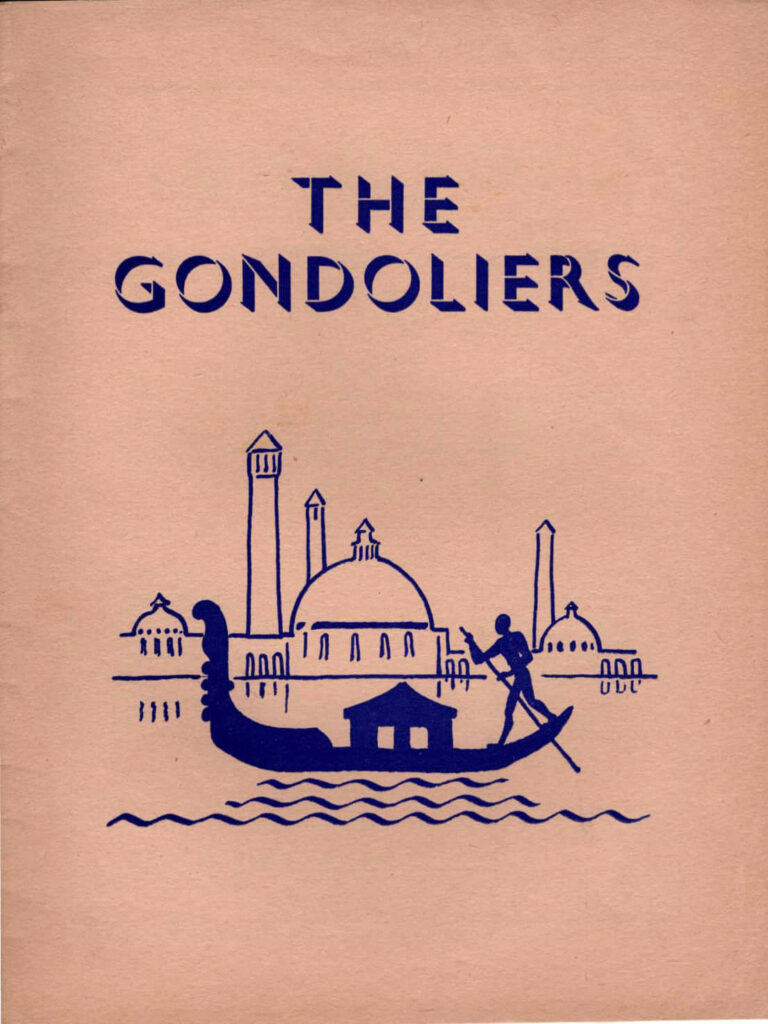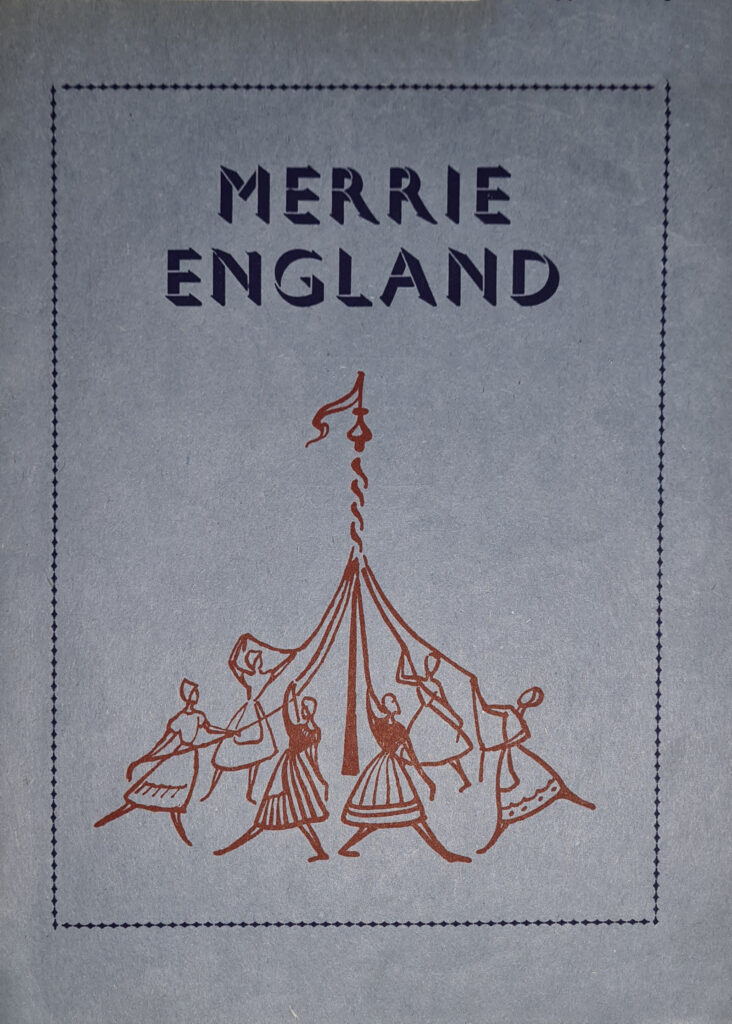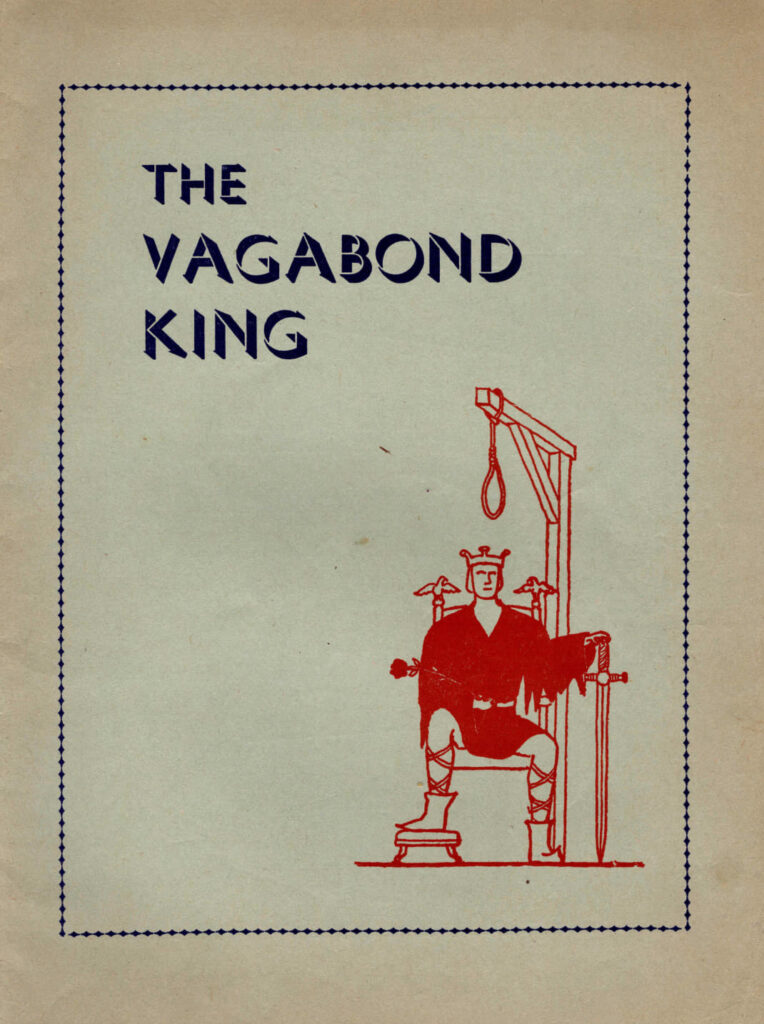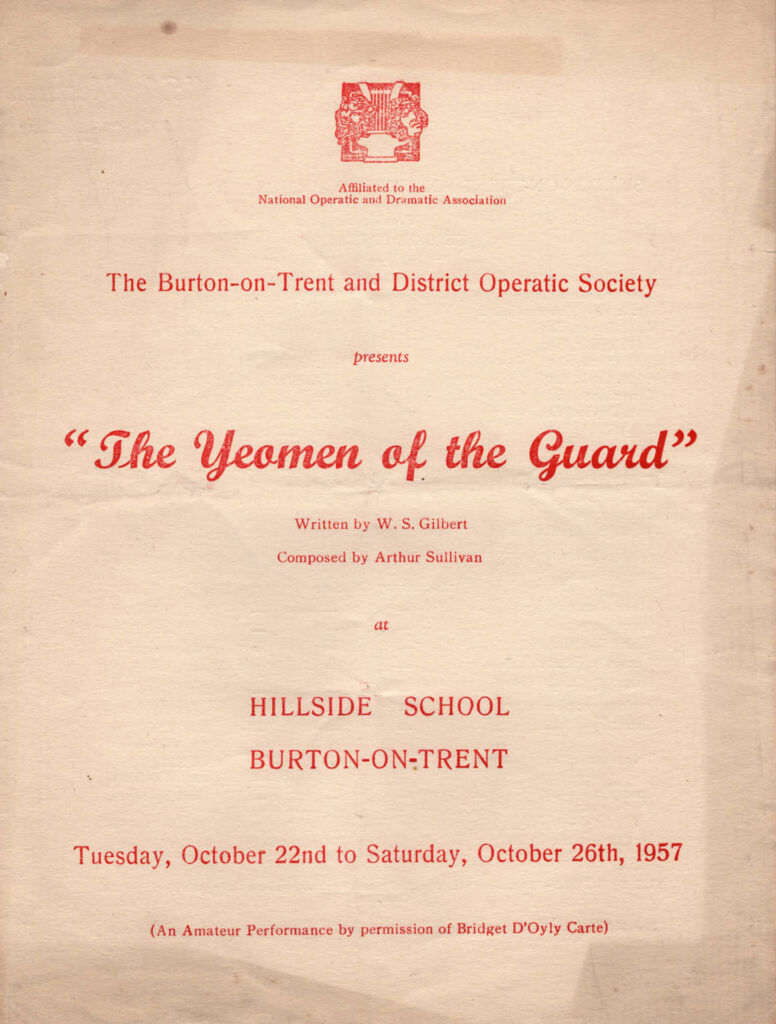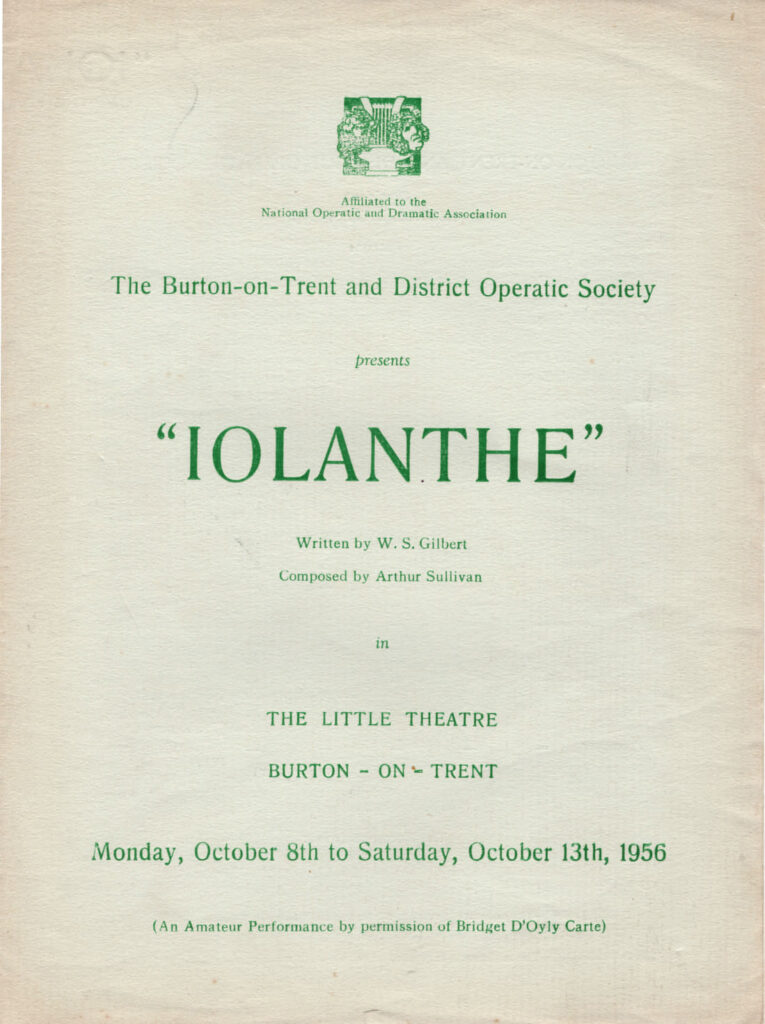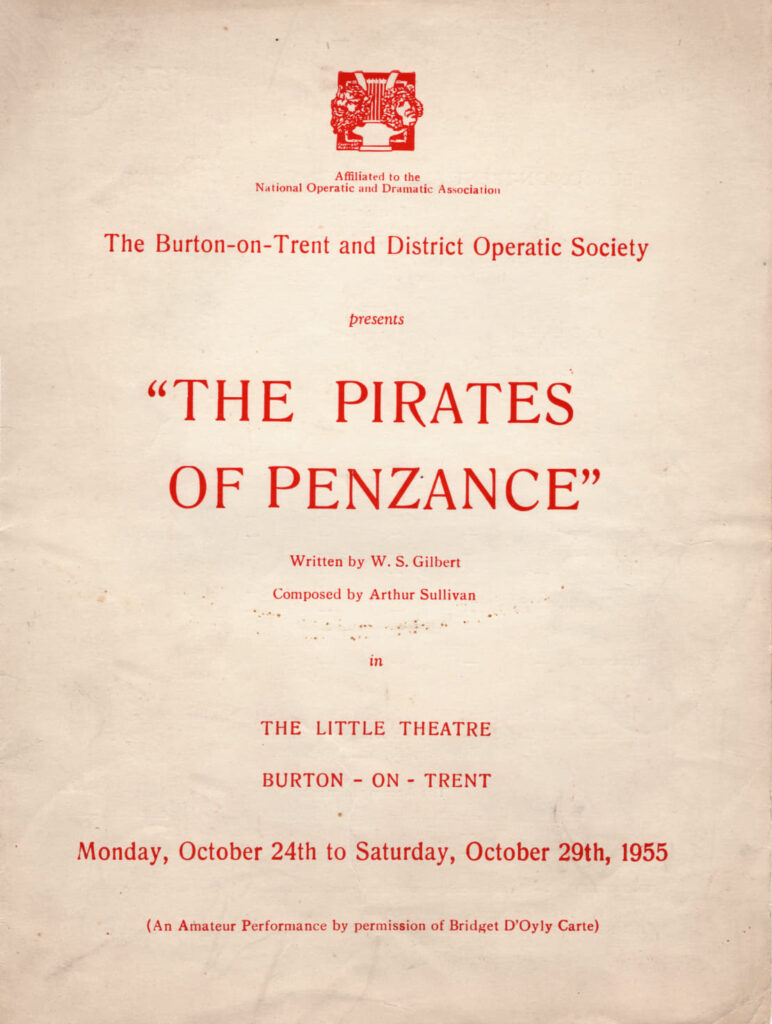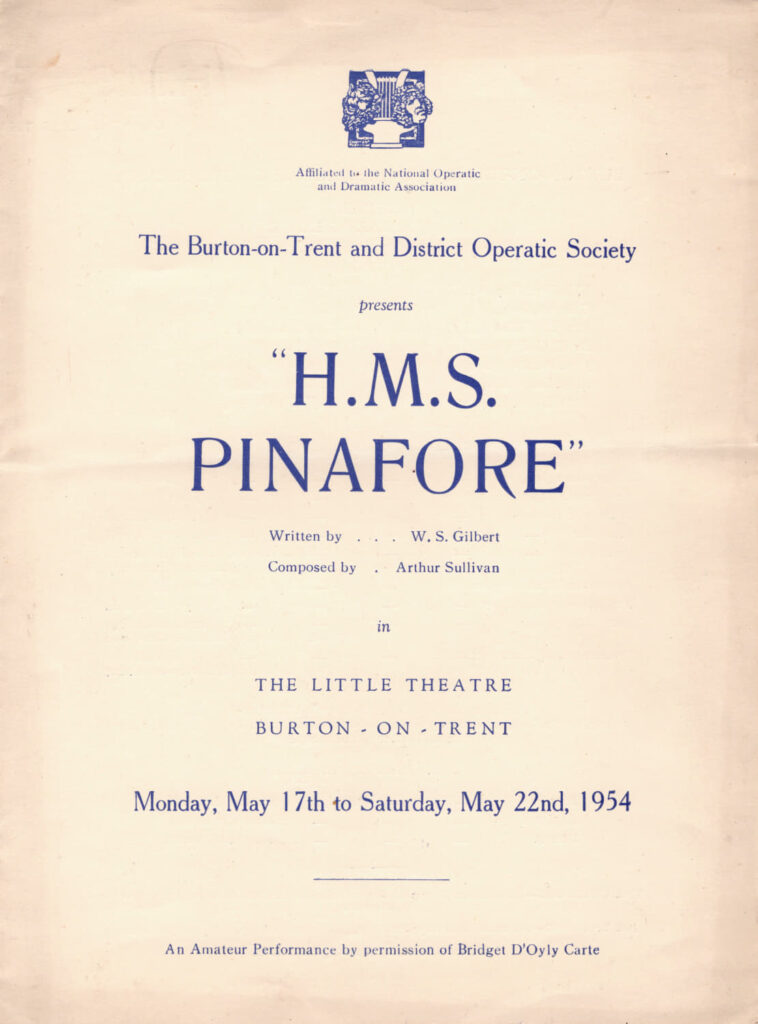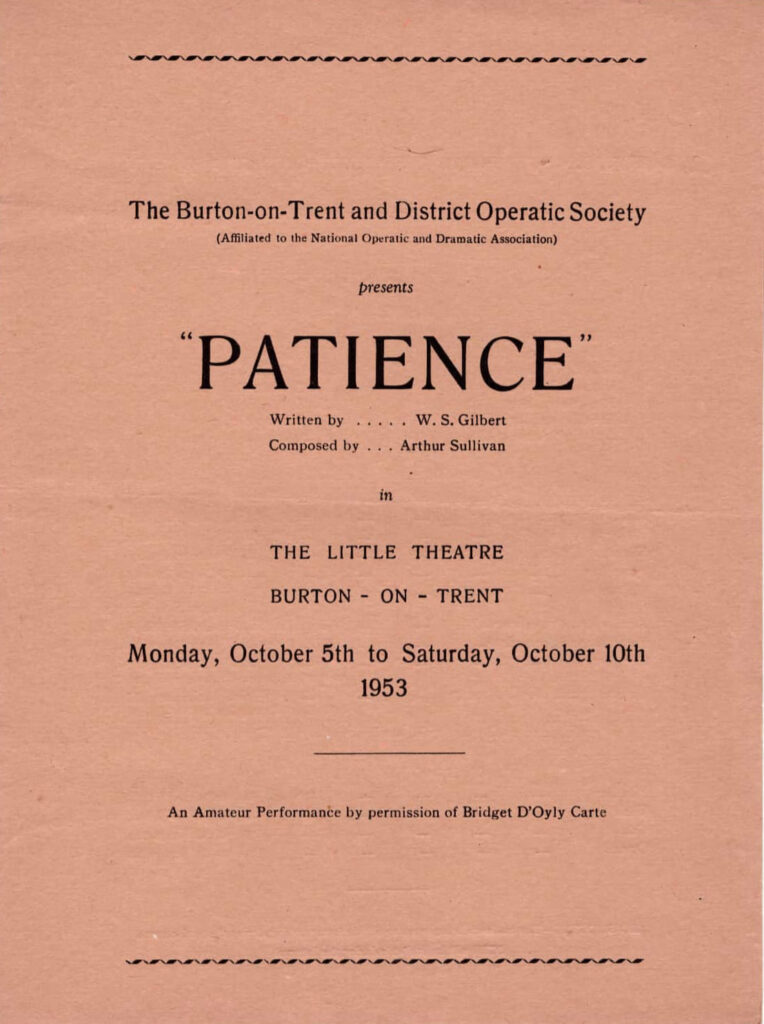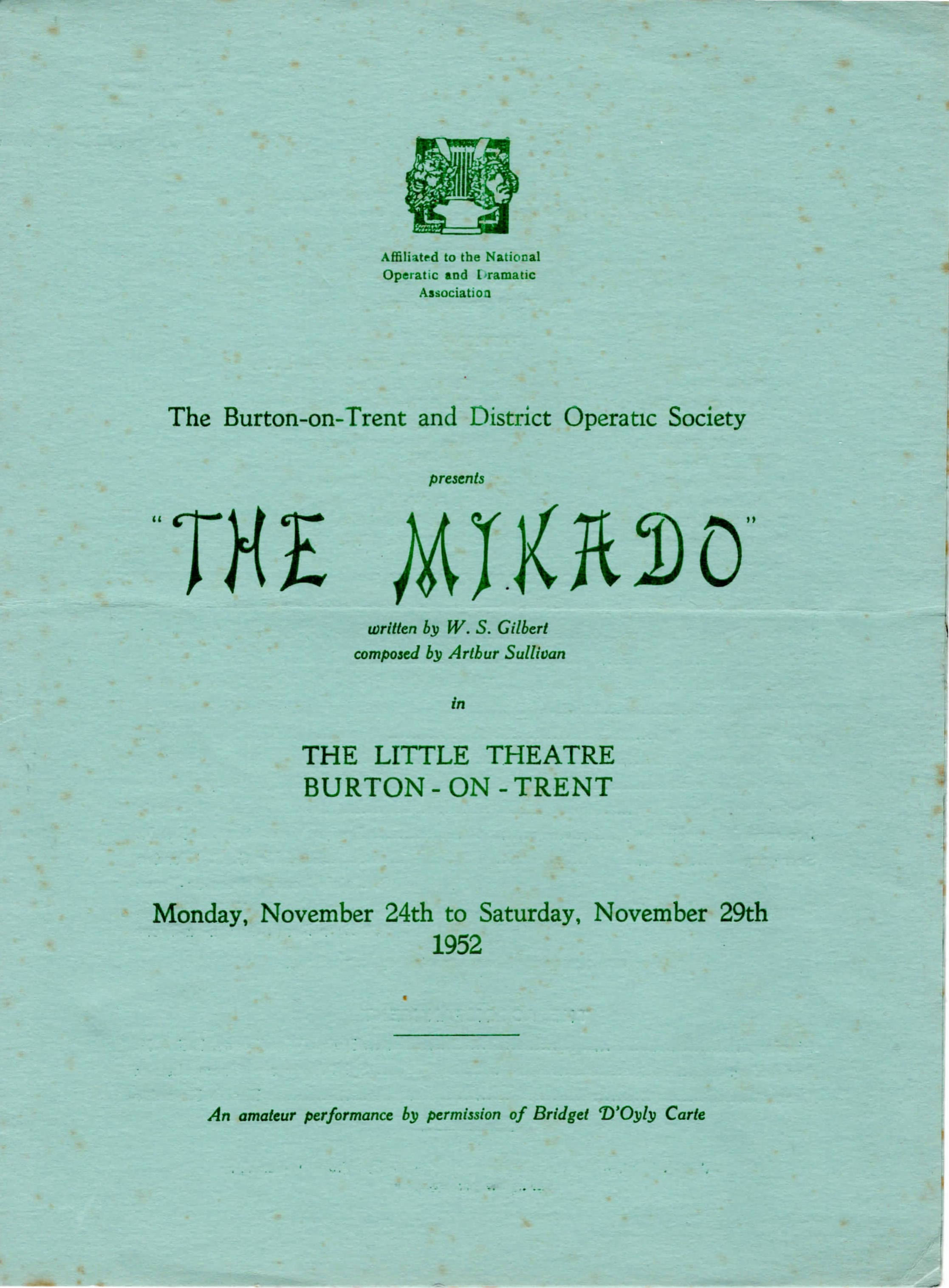The Gondoliers: October 1961
Written by W.S. Gilbert . Music by Arthur Sullivan
The twelfth collaboration between composer Arthur Sullivan and librettist W.S. Gilbert, The Gondoliers (or The King of Barataria) tells the story of two charming Venetian gondoliers, Giuseppe and Marco, who are informed that due to an error of identity when they were young boys, one of them is the heir to the throne of Barataria. They are delighted with the situation and agree to share the responsibilities of governing their new kingdom until it can be ascertained which of them is which, but matters are complicated when the Duke and Duchess of Plaza Toro reveal that their beautiful daughter, Casilda, was married to the future king as an infant. The problem? Giuseppe and Marco are both newly married to the contadine Tessa and Gianetta, and Casilda is in love with her father’s attendant, Luiz. Since its premiere in 1889, The Gondoliers has delighted audiences with its memorable score by Sullivan, and its political satire, cleverly tucked into Gilbert’s witty plot line.
Produced by Ronald Smith
Gallery
The Gondoliers: October 1961 Read More »

